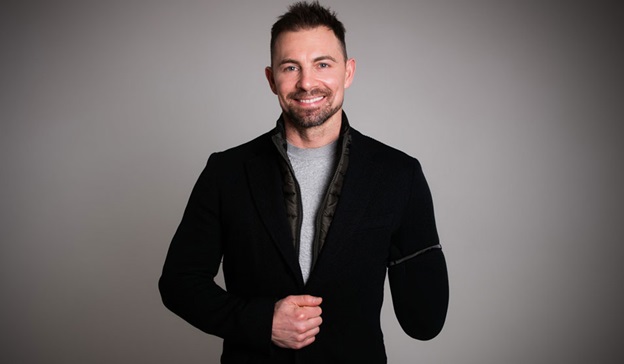Paul Swain, a British armed forces veteran, explains why it is vital that the military community access healthcare and how he’s received help from the OpRESTORE service run by former armed forces clinicians at the Imperial College Healthcare NHS Trust in London.
Tell us a little about your military background.
I joined the Army when I was 17, following in my brother’s footsteps. What appealed to me was the opportunity to give service to my country and by doing so, seeing places that in normal civilian life, I wouldn’t have had the opportunity to experience.
I joined a reconnaissance unit, which formed part of the Royal Armoured Corps. Frontline duties followed. I was very involved in military life, representing the Army in both football and boxing, and over my 17 year career, I worked my way up to instructor level where I taught the next generation of armed forces. I served in Kosovo, Iraq and Afghanistan.
What happened that meant you needed healthcare support?
In active service you see people getting hurt, but you never think that it will happen to you. In May 2011, I was mentoring members of the Afghanistan army to best prepare them ahead of British troops returning to England. One day during training, my translator stood on a hidden landmine device which exploded next to me.
The blast caused serious injuries and I was put on life support, with internal damage caused to the left side of my body. I lost my left arm just below the elbow. Once I was stabilised enough to fly, I was taken to Queen Elizabeth Hospital Birmingham, a hospital which specialises in treating military personnel with acute traumatic injuries.
What did your immediate recovery look like?
I had a number of surgeries on my left arm to stabilise it and to prevent further complications. The next few years involved adapting to a new way of living as an amputee with occupational and physiotherapy support. I re-entered civilian life when I was discharged from the Army in February 2014.
Was it difficult leaving the Army?
You are in your own military bubble and so it took me time to adjust when I was no longer in active service. I expect it’s like when a professional sportsperson retires and you suddenly find yourself with lots of spare time and a need to find a new role in life.
What brought you to OpRESTORE?
Like many people, I struggled during lockdown because of the isolation. This coincided with physical complications of my amputation and some symptoms of post-traumatic stress disorder. While my GP was really supportive and academically understood the conditions I was suffering from, they didn’t have the experiences that I had, and so didn’t 100 per cent get where I was coming from.
I reached out to the Help for Heroes charity who put me in touch with OpRESTORE who could look at my physical and mental health needs in a more holistic way. OpRESTORE is run by medics who have given military service so they better understood my experiences and unique needs.
What support did you access from OpRESTORE?
I had bone spurs protruding from my amputation site which was causing pain and sores and made it difficult for me to wear my prosthetic arm. The OpRESTORE team carried out surgery by trimming down the spurs and then taking a skin graft from my right leg to better protect my amputation site.
When I came for my surgical consultations, it wasn’t a ‘just about the surgery and close the door as you leave’ kind of appointment. My surgeons Mr Reilly and Mr Hettiaratchy were asking ‘what else can we do to support you?’. They put me in touch with experts to support me with my other issues – not necessarily health related – so I was getting the full range of support I needed, alongside my surgery.
What would you say to other veterans who may be reluctant to access healthcare?
I can only talk from my experience as everyone’s experience is different. I felt that I developed a stiff upper lip which made me think I should suffer in silence rather than deal with the physical and mental health symptoms I was experiencing.
The thing about OpRESTORE is that you don’t have to navigate the health system all on your own – you can get help from skilled members of the military family that have some experience of where you’re coming from.
There are still challenges that I’m facing but life in general is better than before I accessed OpRESTORE. If you are from a military background and have health symptoms that require support, make your GP aware of the service and ask them to refer you.










0 Comments